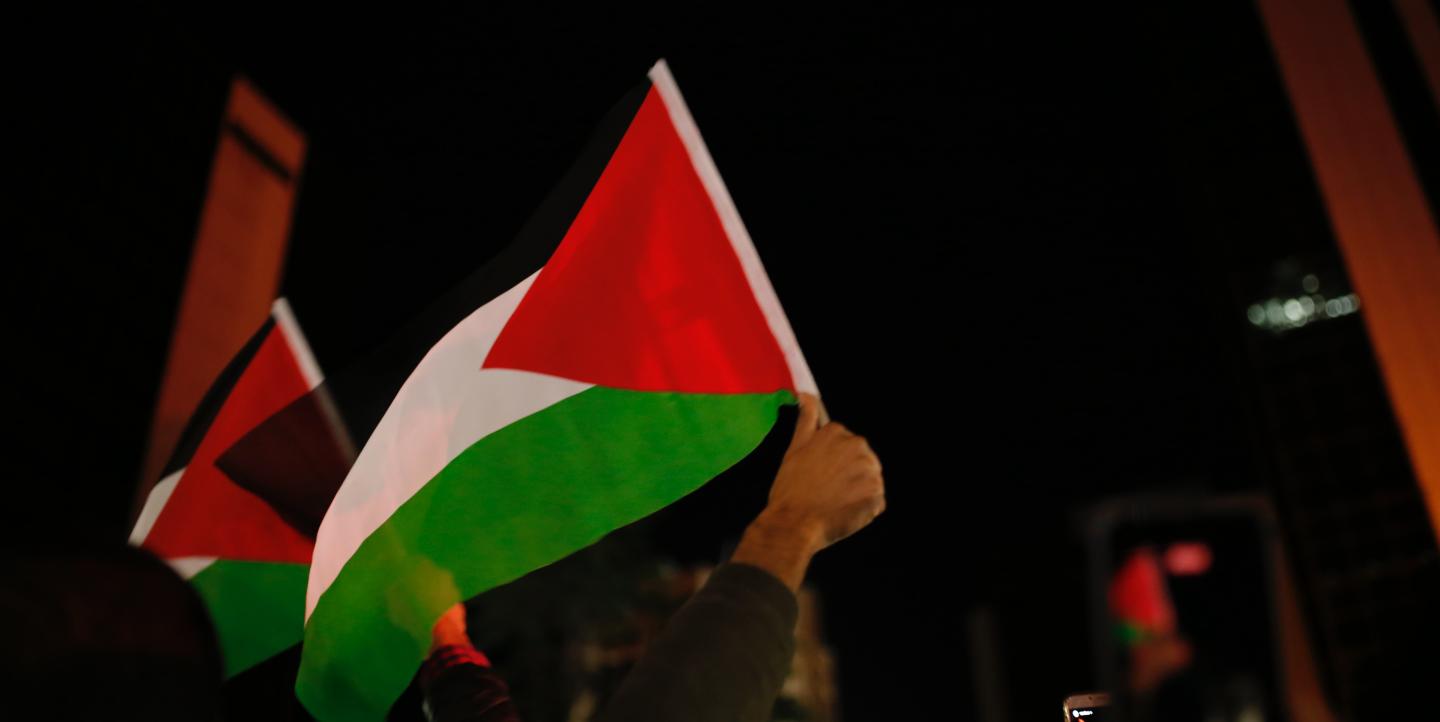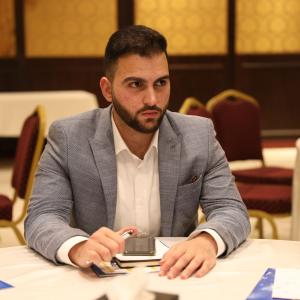For years, Palestinians have been forced to navigate efforts to thwart free expression. This dates back to the 1948 Nakba, when approximately three in four Palestinians were expelled from their homes during the creation of the Israeli state, generating a refugee crisis that remains unresolved today.
The rise of social media has presented uniquely modern obstacles in this regard, particularly when it comes to advocating for Palestinian self-determination and statehood. Today, social media platforms regularly hinder their ability to share news, boost posts, and discuss and shape narratives around the issues affecting their communities.
The impact of social media restrictions
Social media platforms often use violent events in Palestine, such as Israeli strikes on Gaza or the recent raid on the Jenin refugee camp in July, as an excuse to restrict accounts. They may do so simply on the basis of one image or word that are said to violate company guidelines.
Retroactive restrictions that penalize posts from years ago are not uncommon, either. Many Palestinian outlets have experienced bans for this reason, said Amjad Qawasmi, a social media specialist at Raya Media Network.
"Social media, especially on Meta platforms, limits the ability to express yourself as a [Palestinian] journalist and restricts your visibility for the audience interested in your content,” said Qawasmi.
One recent example was the large-scale censorship that took place in 2021, during the Sheikh Jarrah protests against the demolition of Palestinian houses in East Jerusalem by Israeli forces. As Palestinians advocated for justice online, major platforms such as Facebook, X (formerly Twitter) and Instagram suspended accounts, deleted posts and more for sharing content that spoke out against the Israeli expansion of settlements, in what is considered a violation of international law.
Meta, for instance, prohibited the the hashtag “#AlAqsa” from being spread on its platforms, which the company mistakenly interpreted as support for the Al-Aqsa Martyrs Brigades. However, the phrase was in fact used more frequently in reference to the Al-Aqsa mosque in Jerusalem. The episode highlighted the vague standards Meta applies to its censorship algorithms, with journalists forced to adapt in real time to avoid bans.
The restrictions placed on Palestinian news produced by Palestinians reduces how much audiences both locally and abroad can access, as well. In this challenging media landscape, Palestinian journalists continue to navigate these online limitations, highlighting their perseverance in bringing diverse narratives to the forefront.
"Maybe just one or two pages may reach the Arab and international communities, whereas hundreds of other Palestinian pages and accounts are buried,” Qawasmi said. "It doesn't matter if you made the best report you could ever make and have a million likes on your page: less than 10% of your audience will be able to reach your posts without social media outreach.”
Using other platforms isn’t entirely helpful, either. Telegram and other messaging apps, for instance, don't reach as many people as Facebook does, Qawasmi explained. Many Palestinian journalists have self-censored to avoid triggering restrictions, as a result.
Empowering Palestinian journalists in the face of restrictions
There are precautions journalists can take to limit the impact of these social media restrictions.
Dr. Mohammad Abu Alrob, a professor of digital media at Birzeit University in the West Bank, advised journalists to utilize narrative storytelling to explain events and provide needed context. Exercising caution with word choice is imperative as part of this: for instance, avoid using words like “leader” or “hero” in reference to Palestinian figures as this may trigger restrictions.
Abu Alrob highlighted how journalists can leverage trending content on social media to increase the reach and engagement of their stories. Although these trends might exist outside the Palestinian context, they can still be relevant. For example, a comparison video between the international community’s response to Ukraine and its response to the Israeli occupation of Palestine can avoid bans while still achieving high engagement.
Don’t post inflammatory language and visuals that could be misinterpreted by algorithms, Abu Alrob further cautioned. "Avoid using pictures of blood, killings and children. Use expressions and descriptions carefully to avoid being flagged as inflammatory content," he said.
Journalists should also prioritize accuracy by fact-checking and relying on credible sources. Misinformation can undermine trust and lead to content being flagged. Ensuring the reliability of information is essential for navigating social media restrictions effectively.
For security purposes, he recommended separating personal and business accounts across different devices to prevent personal accounts from being hacked or banned.
Fighting digital rights violations
7amleh Centre, led by Nadim Nashif, is at the forefront of documenting digital rights violations in Palestine. Working with international organizations like Human Rights Watch, 7amleh advocates for accountability from governments and social media companies.
In November 2021, 7amleh launched 7or to document violations and recover banned accounts. In 2022, 7or received more than 1,100 reports of digital rights violations, mostly on Meta and X. 7or's impact extends beyond statistics, too: it serves as a beacon of hope for individuals and organizations affected by digital rights violations, providing them with a dedicated platform for support and redress.
“We help journalists and media organizations all the time to recover banned accounts. Sometimes they get hacked, like what happened with Arab 48 [a Palestinian news site] once, and we collaborated with Facebook to return the hacked account,” said Nashif.
While organizations like 7amleh play a crucial role in documenting violations and advocating for fair treatment from social media companies, restrictions impeding freedom of expression for Palestinians persist. In the face of this, journalists in the country continue to seek ways to share their stories and fight for the digital rights of Palestinians, with the goal of preserving their right to expression.
Photo by Ömer Yıldız on Unsplash.


